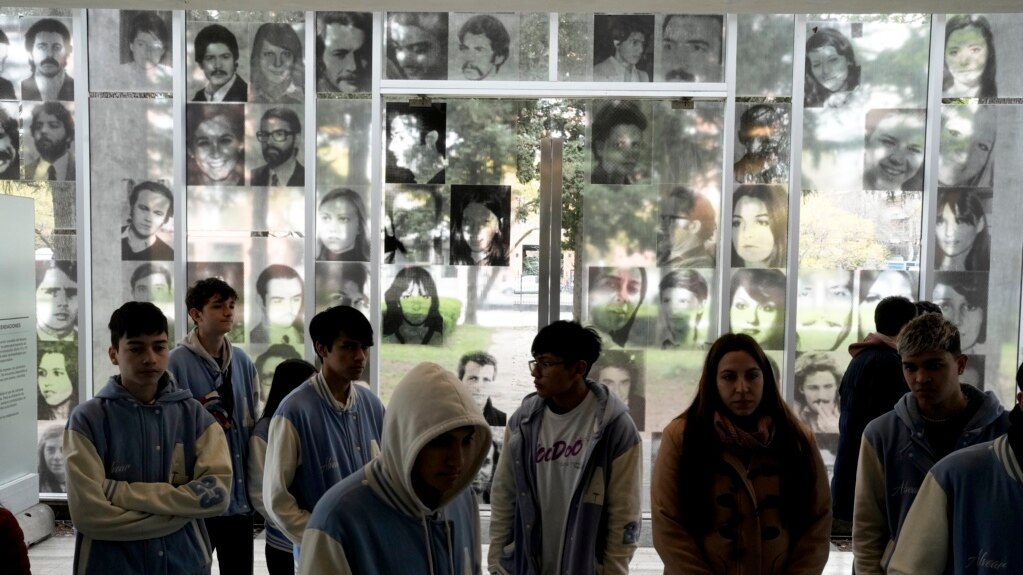Argentina has welcomed a United Nations decision to include a former secret detention and torture center as a World Heritage site.
A UN Educational, Scientific and Cultural Organization (UNESCO) conference in Saudi Arabia agreed this week to include the ESMA Museum and Site of Memory on its list of places “considered to be of outstanding value to humanity.”
The former Navy School of Mechanics, known as ESMA, is in the Argentinian capital, Buenos Aires. It contained the most infamous illegal detention center that operated during Argentina’s last dictatorship --- from 1976 through 1983. It now operates as a museum and a larger site of memory, including offices for government agencies and human rights organizations.
Argentina’s President Alberto Fernández praised UNESCO’s decision in a video message. The memory must be kept alive, he said, “so that no one in Argentina forgets or denies the horrors that were experienced there.”
Fernández later said to the United Nations General Assembly in New York on Tuesday afternoon: “By actively preserving the memory that denialists want to conceal, we will prevent that pain from recurring.”
It is estimated that some 5,000 people were detained at the ESMA during the dictatorship. Many detainees were tortured and later disappeared. It also housed many who were later thrown into the ocean or rivers from planes known as “death flights.”
The ESMA also housed pregnant women brought from other illegal detention centers. They were kept there until they gave birth and their babies were later taken away by military officers.
Argentina’s Human Rights Secretary Horacio Pietragalla Corti praised the decision to recognize the site. He said it is a strong answer “to those who deny or seek to downplay state terrorism and the crimes of the last civil-military dictatorship.”
A video posted on social media by Argentina’s Foreign Ministry showed the official with tears in his eyes as he celebrated the UNESCO decision.
Pietragalla was one of the babies taken by military officers and raised under a false identity. The group Grandmothers of Plaza de Mayo discovered his birth history, as well as those of 132 other stolen babies through genetic testing.
Argentina has done more than any other Latin American country to bring crimes of former dictatorships to trial. It has held almost 300 trials, all linked to crimes against humanity, since 2006.
The ESMA’s addition to the World Heritage list speaks to more than just Argentina. Pietragalla called the recognition “a tribute to the thousands of disappeared individuals in our continent.”
I’m Caty Weaver.

